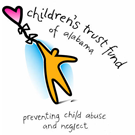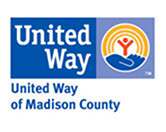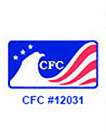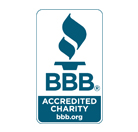What’s up with the changes in Advanced Forensic Interview Training?
By: Linda Cordisco Steele, M.Ed., LPC
Director of Forensic Interview Training and Services

You may have noticed changes in the way that NCAC is offering advanced FI training and likely have some questions about those changes. Let’s begin with our rationale for the changes.
Forensic interviewing is a complex activity. No script or list of instructions can possibly prepare us for the wide variety in children (think age, temperament, culture, trauma history) or the array of types of investigations (think physical abuse, sexual abuse, exploitation, witness to violence, delayed disclosure and reluctance) that involve child witnesses.
Take a moment to consider other skilled activities you may enjoy (currently or previously) such as playing a team sport or a musical instrument, ballroom dancing, knitting, surfing or skiing for example). Such skills are not achieved with a short burst of instruction. To truly develop a level of comfort and enjoyment, much less true competence, hours of practice took place. Opportunities for coaching and targeted instruction from a competent practitioner is incredibly helpful.
It is widely acknowledged that participation in a one-week intensive training exposes new interviewers to a new way of gathering information from child witnesses and is a terrific starting place. A characteristic of good initial FI trainings provides underlying knowledge and recommendations about the best way to elicit accurate and detailed information from a child which is based on science and research. Opportunities for practice of the new skills are typically included. These limited opportunities for practice with feedback do not result in changes in behavior once the new interviewer leaves the training. It is just not possible to “re-wire” our brains and change long-standing habits through one-week of instruction and a short episode of practice.
A few fortunate new forensic interviewers are retuning home to a Child Advocacy Center where there is already a skilled and passionate forensic interviewer who will provide supervision, support, and coaching which can provide a clear pathway to increased competence and confidence. For many forensic interviewers returning from a training, this will not be the case.
The instructors at NCAC are committed to continuously improving our training offerings. We interact with forensic interviewers from across the country (and internationally) and respect that factors such as community make-up, size of the CAC, resources, and access to skilled practitioners varies greatly. We want to play our part in filling that gap and have already implemented programs such as CALIO, the mentoring group, and a consultation group for developing supervisors of forensic interviewers.
continuously improving our training offerings. We interact with forensic interviewers from across the country (and internationally) and respect that factors such as community make-up, size of the CAC, resources, and access to skilled practitioners varies greatly. We want to play our part in filling that gap and have already implemented programs such as CALIO, the mentoring group, and a consultation group for developing supervisors of forensic interviewers.
Previously, we have offered 3-day trainings called “Advanced Forensic Interviewing” in which multiple topics were addressed. Teaching segments included specialized topics (reluctance, exploitation, witness to homicide, etc.) or groups of children (preschoolers, children with a disability, etc.) We have come to have concerns about the value of this approach. When multiple topics are included in a single day of training, it is not possible to go deeply into any topic or to provide opportunities for practice and application. Group size also limited the possibility of individualized work.
An additional challenge to our traditional approach was that most classes included participants with a wide range of abilities and experience. Some participants were left feeling that the training was too easy and did not provide enough challenge and others were missing skill sets that were needed to fully make use of the new instruction. We hope that this more targeted approach will effect more change in interviewer behavior and understanding and forensic interviewers and their supervisors will be able to select the training that best meets the needs and impacts their practice.
We are calling our new trainings a “Pathways Approach to Developing Skills in Forensic Interviewing”. You can check out our training offerings on this website. Stay tuned to learn more about the Pathways.










